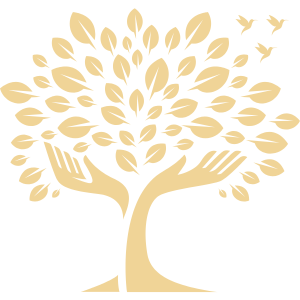
story-healing | moral courage | sustainable service
healing the stories that shape how we serve
serving others is noble work and filled with hidden costs we don’t talk about enough.
When leaders and professionals dedicate themselves to serving others, we expect our organizations to uphold integrity, fairness, and support. But what happens when the very institutions meant to support us become a source of harm? What happens when we’re regularly exposed to other people’s trauma and the systems we’ve dedicated our lives to uphold fail—when policies prioritize productivity over people, when betrayal replaces trust, when ethical breaches force impossible choices? It leaves lasting scars in the form of vicarious trauma, moral injury, and institutional betrayal.
For too long, those who serve—leaders in public service, law, healthcare, advocacy, and mission-driven work—have been asked to sacrifice their well-being for the greater good. Through trauma-informed leadership and our story-healing framework, we help individuals and organizations recognize, respond to, and repair the deep wounds of organizational trauma, vicarious trauma, moral injury and institutional betrayal—so you can lead and serve with empathy, courage, and care.
If you've ever felt disillusioned by the work you once loved, exhausted from fighting against a broken system, or questioning whether your values still have a place—you're not alone.

current services + offerings
As challenging as it is, with the right skills and support, we have the capacity to meet and thrive through this moment.
We’ve entered an era of polycrisis—a time of overlapping global crises that are exposing the fragility of our institutions and the limits of traditional leadership models. Political instability, systemic injustices, environmental collapse, and public health failures are pushing mission-driven professionals to their breaking point.
Leaders in advocacy, public service, healthcare, education, and humanitarian work are being asked to do more with less, navigate ethical dilemmas, and sustain their missions amid deepening distrust and institutional failure.
Doing this work without breaking under the weight of the polycrisis requires sustainable leadership rooted in moral courage, collective care, and systemic change.
At Roots in the Clouds, we work with individuals and organizations to meet this moment with integrity and moral courage to drive systemic change, foster collective care, and create sustainable impact through trauma-informed, human-centered leadership.
Want to learn more about how we can support you?
we’re living in an era for which we were never prepared.
trauma and burnout don’t fully capture the moral dimensions of our current experiences.
Burnout, vicarious trauma, and compassion fatigue are common in mission-driven work—but they don’t tell the whole story. What we’re experiencing isn’t just exhaustion or disillusionment; it’s a deeper wound to our collective sense of right and wrong.
moral injury happens when we are forced to act against our values, witness harm we cannot stop, or are pressured to stay silent in the face of injustice.
institutional betrayal occurs when the systems meant to support us instead prioritize power, financial interests, or self-preservation, leaving those who serve feeling abandoned and disconnected from their purpose.
systemic grief is the profound mourning that comes from realizing the systems we've dedicated our lives to aren't broken—they're working exactly as they were designed to. To extract. To erase. To dehumanize.
The systems we work within are often built for productivity, not people. For those in service-driven roles, the weight of ethical dilemmas, institutional failures, and the relentless demands of mission-driven work can take a toll—physically, mentally, and emotionally.
At Roots in the Clouds, we help individuals and teams understand moral injury, institutional betrayal, and systemic grief through trauma-informed, human-centered frameworks that address both the personal and systemic roots of these harms. Check out our latest toolkit to learn more.
The Rooted + Resilient Toolkit offers practical tools and evidence-based strategies to help you:
Understand the different forms of stress and trauma common in trauma-exposed fields
Recognize the impact of moral injury and institutional betrayal
Regulate your nervous system in moments of stress
Develop sustainable self-care and collective care practices
Cultivate resilience without sacrificing your well-being
This is about more than just surviving the weight of your work—it’s about sustaining your ability to keep showing up, fully and wholeheartedly, to do the work the world needs now more than ever.

sacred resistance isn’t just about taking a stand—it’s about staying rooted in your values, resisting burnout through rest, and embracing collective care—because none of us can do this work alone.
you don’t have to carry the weight of this moment alone—join us.
the stories we tell about what it means to be “of service” need to change.
now available as an audiobook at most major retailers and libraries!
For generations we’ve been conditioned to believe that service requires sacrifice—that burnout is just part of the job, and exhaustion is a badge of honor. But what if that story is wrong?
In Tell Me My Story: Challenging the Narrative of Service Before Self, I unpack the hidden costs of mission-driven work, the impact of moral injury and institutional betrayal, and how we can build a future where service is sustainable.
Named a 2024 NYC Big Book Award Distinguished Favorite, 2025 Independent Press Award Distinguished Favorite, and excerpted in the Stanford Social Innovation Review, this book is part memoir and part manifesto, and a call to action—an invitation to reimagine leadership in a way that sustains both people and purpose.
meeting this moment also requires hope and healing.
For too long, the culture of service has told us that caring for others means sacrificing ourselves—that exhaustion is a badge of honor, and burnout is just part of the job. But sustaining ourselves for the long haul requires something different: hope, healing, and a new way forward.
Service Without Sacrifice is a limited-series podcast inspired by Tell Me My Story–Challenging the Narrative of Service Before Self. Hosted by Dimple Dhabalia, this series explores the silent struggles of service-driven professionals, including vicarious trauma, moral injury, organizational trauma, and the healing power of storytelling.
Through candid conversations with leaders in the humanitarian and public service sectors, each episode delves into themes of empathy, resilience, and finding harmony between serving others and caring for ourselves
Service Without Sacrifice isn’t just a podcast—it’s part of a movement to transform workplace cultures, challenge outdated narratives, and create a future where service is sustainable, and those who serve are supported.
the dismantling of the U.S. government and USAID has sent shock waves through a global web of service and care.
it’s left many who have spent a lifetime serving others, asking: what now?
federal employees, public servants, humanitarians, frontline responders, nonprofit professionals, social justice advocates, and so many others who chose a career in service of others, are now reckoning with disillusionment stemming from moral injury, institutional betrayal, and the collapse of the very systems they dedicated their lives to.
it’s left many feeling uprooted, burned out, and heartbroken—searching for meaning in the face of collective grief and loss few of us were ever equipped to navigate.
the space between is a series of small group coaching + collective care circles created specifically for those who have served and are now in a space of unexpected transition. Before diving into deeper work, join me for a free webinar to explore how healing our stories transforms rupture into resilience and pain into purpose in moments of transition. It's a brave space to gather with others to pause, grieve, and create a path toward healing—and whatever comes next.
want to learn more?

contribute your voice to a new project
letters from the liminal
We often feel disoriented in liminal spaces—those thresholds between what was and what’s next. The grief. The uncertainty. The ache. The unraveling of who we thought we were.
But what if writing from that space could become a ritual of healing—one rooted in connection, care, and love?
I'm at the beginning stages of working on a multimedia project that explores these questions through the lens of those tending to the world's wounds. Framed as letters from the liminal, this participatory project weaves together personal narratives, immersive soundscapes, and land-based wisdom to explore how acts of love and care endure across borders, ecosystems, and institutions—grounding the work in the space between moral courage, collective care, and spiritual ecology.
letters from the liminal invites us to meet ourselves in the in-between. Through the simple yet powerful act of letter writing, we begin to name what hurts, what matters, and what might be possible.
The project draws from stories rooted in fighting authoritarianism, humanitarian crises, immigrant justice, public service, community care, caregiving, ancestral wisdom, and land-based healing practices—letters written from the liminal spaces between:
trauma and healing - How do we tend to wounds while they're still tender?
burnout and rest - What does sustainable care look like in unsustainable systems?
extraction and resistance - How do we create while working within systems designed to consume?
grief and joy - How do we carry both heartbreak and hope?
seen and unseen - How do we honor the invisible labor of care and love?
To learn more about the project and how to contribute, use the button below.
storyteller | facilitator | humanitarian
meet Dimple Dhabalia
Dimple D. Dhabalia is an author, speaker, facilitator, and human-centered leadership coach with over two decades of experience in government and humanitarian sectors. As the founder of Roots in the Clouds, she partners with leaders and mission-driven organizations to address the root causes of organizational trauma and design cultures that foster moral courage, collective care, and sustainable service.
Dimple specializes in helping organizations navigate the complexities of vicarious trauma, moral injury, and institutional betrayal, drawing on her deep expertise in trauma-informed leadership, mindful performance, and spiritual ecology. Through her work, she creates brave spaces where leaders and teams can process the realities of working in high-pressure, purpose-driven environments and develop practices to preserve their humanity as they serve others.
Her new book, Tell Me My Story–Challenging the Narrative of Service Before Self [Ambika Media 2024], was named a 2025 Independent Press Award Distinguished Favorite, 2024 NYC Big Book Award Distinguished Favorite, and excerpted in the Stanford Social Innovation Review. Her work has also been featured in Fast Company, CEO World Magazine, and the Federal News Network. Dimple is the creator and host of Service Without Sacrifice, a limited-series companion podcast to Tell Me My Story, and the creator and co-host of the popular podcast What Would Ted Lasso Do? exploring life and leadership through the popular TV show “Ted Lasso.





















